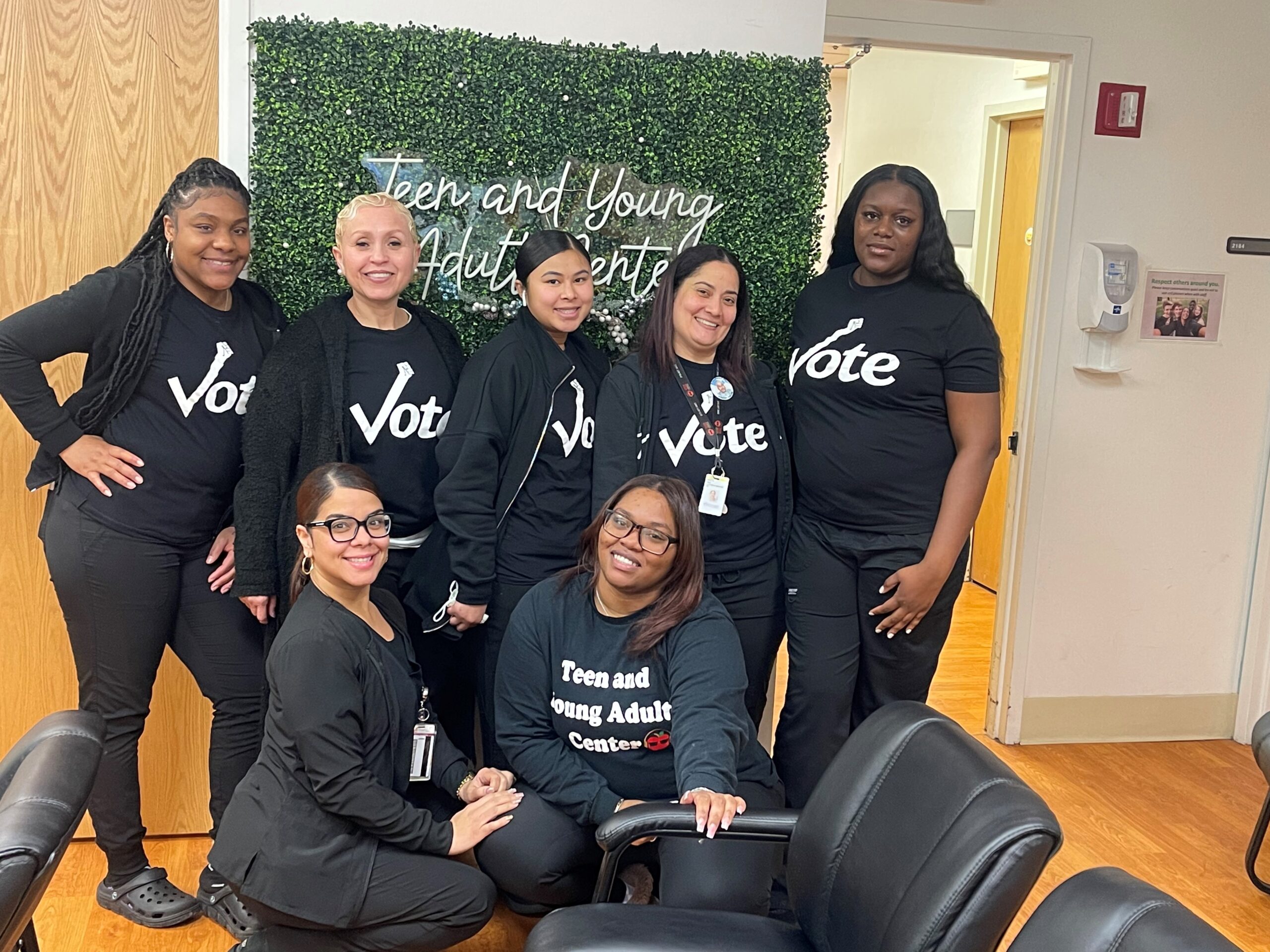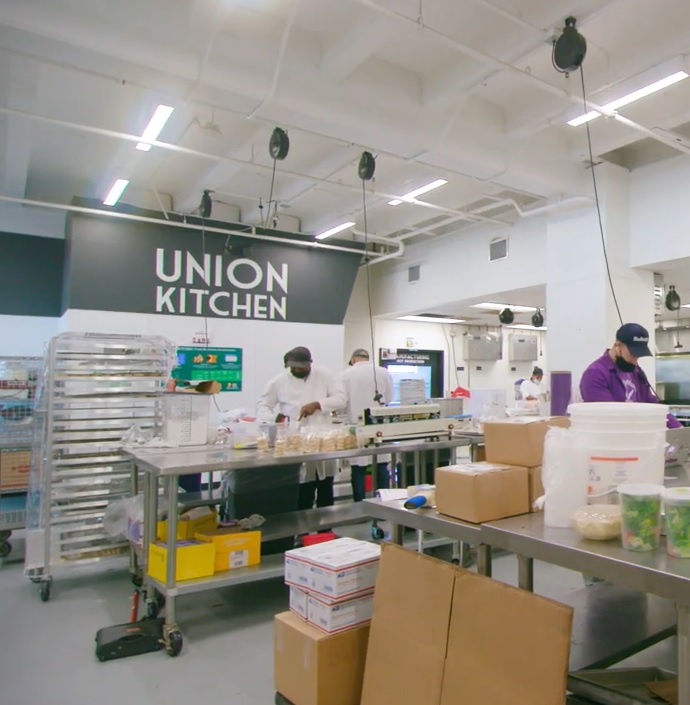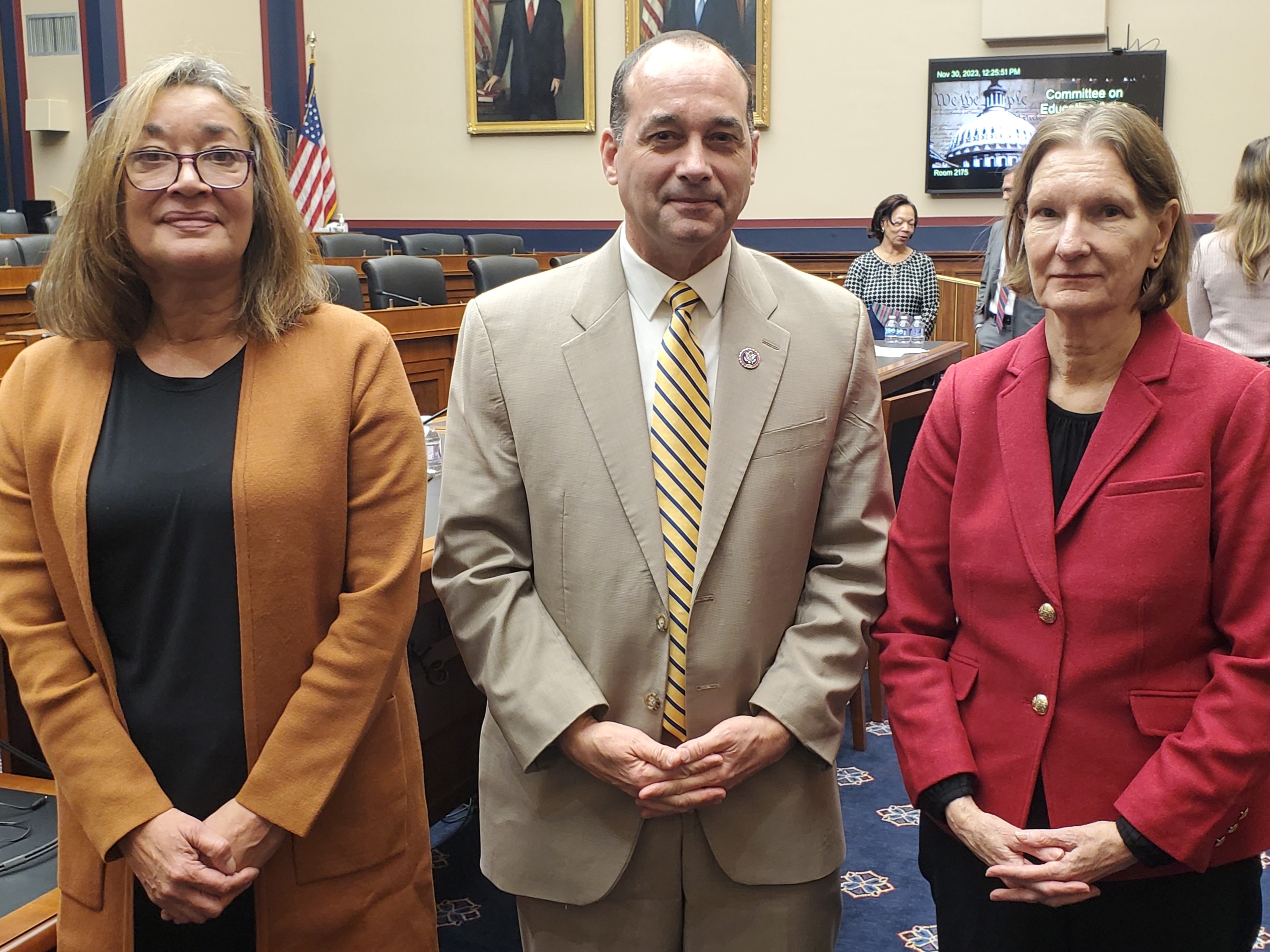Penske Truck Rental Employees in Minneapolis and Nashville Overwhelmingly Vote to Remove Machinists Union
Majority of workers in both work units have prevailed in effort to free themselves of unwanted IAM union bosses’ so-called ‘representation’
MINNEAPOLIS, MN & NASHVILLE, TN – Majorities of Penske Truck Rental employees at locations in Minnesota and Tennessee have voted to remove the International Association of Machinists (IAM) union from their respective workplaces. The decertification petitions were filed by workers with free legal aid from the National Right to Work Legal Defense Foundation in April with the National Labor Relations Board (NLRB), asking the agency to hold votes to formally remove IAM union officials’ monopoly bargaining power.
On May 1 in Minneapolis, Minnesota workers voted 26 to 7 to remove IAM District Lodge No. 77 union officials. The NLRB-supervised decertification election took place after Penske employee Kyle Fulkerson submitted a petition on April 4, 2024 signed by a majority of his coworkers asking the NLRB to hold a vote to remove the union from the facility.
“This lopsided vote is a testament to the fact that after having seen the IAM up close and personal in our workplace, my colleagues and I are confident that we are better off without union officials so-called ‘representation,” said Fulkerson about the outcome, which became final on May 8 after a one-week objection period passed with no union challenge to the outcome being filed.
Meanwhile in Tennessee, Penske employee David Saylor filed his decertification petition on April 11 backed by a majority of the employees at the downtown Nashville Penske location. On May 8, they voted 15 to 8 to oust IAM District Lodge No. 735. Today, on Thursday, May 16, 2024, the vote became finalized absent a last ditch attempt by union officials to overturn the workers’ vote.
The Minneapolis and Nashville-based workers are not the only Penske employees to remove unwanted union so-called “representation” with legal aid from the National Right to Work Foundation. In 2022, every worker but one as a Penske facility in Indiana signed a petition seeking to decertify the Teamsters union officials at that location. Before an NLRB-supervised decertification election was scheduled, Teamsters officials issued a statement, disclaiming representation in an apparent attempt to spare themselves the embarrassment of an overwhelming vote by workers to reject the union’s so-called “representation.”.
“Workers across the country are increasingly exercising their rights to remove unwanted unions, with more decertification elections held last year than in any year since 2017,” said National Right to Work Foundation President Mark Mix. “No worker anywhere should be forced under the so-called ‘representation’ of a union they oppose, and Foundation staff attorneys stand ready to assist workers wanting to hold a decertification election to oust a union they oppose and believe they would be better off without.”
KIPP St. Louis Charter High School Educators to Vote This Week on Whether to Oust AFT Union Bosses
Union decertification election will take place among wide swath of school employees, including teachers, advisors, administrative staff, and others
St. Louis, MO (May 14, 2024) – Teachers, advisors, nurses, and other employees at KIPP St. Louis High School will vote this week on whether to remove American Federation of Teachers (AFT) union officials from power at the school. The union decertification vote follows KIPP teacher Robin Johnston’s submission of a “decertification petition” earlier this month to National Labor Relations Board (NLRB) Region 14 in St. Louis. Johnston filed the decertification petition with free legal aid from the National Right to Work Foundation.
The NLRB is the federal agency responsible for enforcing federal labor law, which includes administering elections to install (or “certify”) and remove (or “decertify”) unions. Johnston’s petition contains signatures from enough of her coworkers to trigger a decertification vote under NLRB rules.
Because Missouri lacks Right to Work protections for its private sector workers (which includes employees at public charter schools like KIPP), union officials have the legal privilege to enforce contracts that force workers to pay union dues or fees as a condition of getting or keeping a job. In contrast, in Right to Work states, union membership and union financial support are strictly voluntary.
However, in both Right to Work and non-Right to Work states, union officials in a unionized workplace are empowered by federal law to impose a union contract on all employees in the work unit, including those who oppose the union. A successful decertification vote strips union officials of both their forced-dues and monopoly bargaining powers.
Vote Set to Take Place May 17
“AFT union officials haven’t stood up for us,” commented Johnston. “I think the majority of my coworkers agree that they’ve only made it harder for us to help our students succeed, especially through a divisive strike order, and that’s a trend I hope we can reverse with this vote. We hope the election proceeds without delay and without interference from union officials.”
The NLRB has scheduled a vote to occur on Friday, May 17. According to Johnston’s petition, the vote will occur among “College and Career Advisors, English Language Learners, Leads, Lead Teachers, Learning Support Teachers, Mental health Professionals, School Nurses, Special Ed. Teachers, Specials Teachers, Speech Language Pathologists, Virtual Learning Facilitators, Behavior Support Specialists, High School Registrars, Long Term Subs, Office Coordinators, Paraprofessionals, Permanent Building Subs and Receptionists” at the school.
Foundation attorneys have recently aided other charter school educators in efforts to remove unwanted union officials, most recently in San Diego, CA, where employees of Gompers Preparatory Academy prevailed in 2023 after a nearly four-year effort to vote out the San Diego Education Association (SDEA) union, an affiliate of the National Education Association (NEA).
“Top teacher union officials, including Randi Weingarten of the AFT and Becky Pringle of the NEA, seem to regularly make headlines for political radicalism and not for anything related to helping teachers, which seems to be a reality on the ground at KIPP St. Louis,” commented National Right to Work Foundation President Mark Mix. “Ms. Johnston and her fellow educators join a growing number of workers across the country who are realizing that union boss agendas don’t align with what’s best for them, and Foundation attorneys are proud to help them exercise their right to vote away unwanted union control.”
Michigan Security Guard Slams Union with Federal Charges for Illegal Dues Seizures, Transparency Issues
Union officials fail to provide required information on how dues money is spent, already face vote which could stop forced-dues spigot
Grand Rapids, MI (May 8, 2024) – James Reamsma, a security guard whose posts include the Gerald R. Ford Federal Building and other government sites in the Grand Rapids area, has hit the United Government Security Officers of America (UGSOA) union with federal unfair labor practice charges maintaining that UGSOA union officials are seizing dues money from his paycheck without providing required disclosures on how the union spends worker cash. Reamsma filed the charges at Region 7 of the National Labor Relations Board (NLRB) in Detroit.
Reamsma is also leading his fellow security guards at Triple Canopy Inc. in an effort to vote away the UGSOA’s power to compel guards to pay dues or fees to the union in what is known as a “deauthorization election.” He is receiving free legal aid in both actions from the National Right to Work Legal Defense Foundation.
Reamsma’s charges seek to enforce his rights under the Communications Workers of America v. Beck Supreme Court decision, which was won by Right to Work Foundation attorneys. The Court held in Beck that union officials cannot force workers who have abstained from union membership to pay union dues or fees for expenses not directly germane to contract negotiations, such as union political activities. Workers who exercise their Beck rights are also entitled to an independent audit of the union’s finances, a breakdown of how union officials spend forced contributions, and an opportunity to challenge how the union calculates its reduced “Beck fee.”
Beck rights are only relevant in non-Right to Work jurisdictions like Michigan, where union officials have the legal privilege to force private sector workers to pay dues or fees as a condition of getting or keeping a job. In contrast, in Right to Work states like neighboring Indiana and Wisconsin, union membership and all union financial support are strictly voluntary. Michigan had Right to Work protections until a 2023 repeal rammed through by union partisans on the Michigan Legislature became effective earlier this year.
Union Dubiously Claims No Dues Money Goes to Politics
According to Reamsma’s charge, he submitted a notice to UGSOA union agents in March that requested the union reduce his dues payments in accordance with Beck and provide him with the required financial information. In response, union officials claimed that the amount of dues chargeable to nonmembers was equal to 100% of full union dues. Reamsma’s charge states that UGSOA “failed to provide the required financial disclosures for itself and its affiliated unions, and a chance to object to its alleged reduced fee.”
The charge also notes that, despite Reamsma notifying union officials in April that he prefers to pay union dues by check, UGSOA ignored this request and has continued to take money directly from his paycheck by payroll deduction. Federal labor law forbids union officials from using direct deduction to collect union dues or fees without worker consent.
Foundation attorneys argue in the charge that the union’s continued seizing of dues money from Reamsma’s paycheck “restrain[s] and coerce[s] Charging Party in the exercise of his Section 7 rights” under the National Labor Relations Act (NLRA). The NLRA protects the right of workers to refrain from union activities.
Guards May Vote to End Forced Dues
The NLRB has scheduled May 17 to count the votes in Reamsma’s deauthorization election, which is currently taking place by mail. If a majority of his colleagues vote to deauthorize the union, it will no longer have the legal power to coerce Reamsma and his colleagues to pay dues or fees as a condition of employment. Michigan’s non-Right to Work environment forces workers to either deauthorize a union or vote it out of a workplace completely (via a similar process known as “decertification”) if they want to end union officials’ forced-dues power.
“UGSOA union officials appear to be withholding vital information about how they spend worker money from the very security guards they claim to ‘represent,’” commented National Right to Work Foundation President Mark Mix. “If union bosses won’t respect basic worker rights regarding the collection and spending of dues money, Triple Canopy security guards should rightly be skeptical of whether UGSOA deserves the privilege to force them to pay dues or fees at all.
“While it’s illegal everywhere to force workers to pay for union political expenditures they oppose, the choice to financially back a union at all should rest solely with each individual worker, which is why Right to Work protections are so important,” Mix added.
Majority of Employees at Emporia Rehabilitation and Healthcare Seek to Remove SEIU Union
Decertification election to remove “Workers United Mid Atlantic Regional Joint Board” union officials set for Thursday
Emporia, VA (May 8, 2024) – A majority of employees at Emporia Rehabilitation and Healthcare Center in Emporia, Virginia, have petitioned the National Labor Relations Board (NLRB) for a secret ballot vote to remove the Workers United Mid Atlantic Regional Joint Board union from their workplace. A decertification election has been scheduled for Thursday, May 16. Emporia employee Christy Smith filed the petition requesting the vote with free legal aid from the National Right to Work Legal Defense Foundation.
Smith filed the union decertification petition on April 18 with the NLRB, the federal agency responsible for enforcing federal labor law, which includes administering elections to install (or “certify”) and remove (or “decertify”) unions. Smith’s petition contained support from over half of her 60 coworkers, well more than required to trigger a decertification vote under NLRB rules. SEIU affiliate, “Workers United” [sic] Mid Atlantic Regional Joint Board union officials have maintained monopoly bargaining power at Smith’s workplace for over a decade.
Virginia is a Right to Work state, which means that union financial support is strictly voluntary for employees. In contrast, in states that do not have Right to Work laws, union officials can require employees to pay union dues or fees under threat of termination. However, in both Right to Work and non-Right to Work states, union officials are empowered by federal law to impose a union contract on all employees in the work unit, including those who oppose the union.
A successful decertification vote strips union officials of such monopoly bargaining powers. Nursing staff, Dietary staff, and Housekeeping staff, comprising of the 61 employees at the facility, are eligible to vote in this NLRB-supervised election.
“This majority-backed decertification petition at Emporia Rehabilitation and Healthcare is yet another example of the growing interest among workers in unionized workplaces to reconsider union affiliation,” said Foundation President Mark Mix. “The National Right to Work Legal Defense Foundation stands ready to provide free legal aid to workers seeking to exercise their right to remove an unwanted union from their workplace and to defend workers against any attempts by union officials to undermine or block workers from freeing themselves from unwanted so-called union ‘representation.’”











Foundation Blasts Biden Plan to Sneak Union Monopoly Power into Agricultural Sector
The following article is from the National Right to Work Legal Defense Foundation’s bi-monthly Foundation Action Newsletter, January/February 2024 edition. To view other editions of Foundation Action or to sign up for a free subscription, click here.
Comments expose DOL rule’s rigging of agricultural visa program to favor union organizers
Julie Su — “acting” secretary of the Biden Labor Department due to bipartisan opposition barring her from the agency’s top job — is overseeing an attempt to sneak union boss power into the agricultural sector against Congress’ will.
WASHINGTON, DC – Federal labor policy in the United States provides a smorgasbord of powers to union bosses in the private sector, not the least of which are the powers to impose one-size-fits-all contracts on dissenting workers in a unionized workplace, and to force workers to pay dues in non-Right to Work states.
Traditionally that hasn’t been the case in the agricultural sector, where each state has the freedom to make its own labor policy. But in November 2023, the Biden Department of Labor announced a rule which could upend this balance and effectively impose on temporary agricultural employees portions of federal labor law that are overwhelmingly favorable to union bosses. The National Right to Work Foundation promptly filed comments exposing the slated rule as a Big Labor power grab.
Biden Admin Defies Congress by Granting Union Bosses Power Over Farmworkers
The proposed rule would assist union bosses with imposing monopoly bargaining privileges over temporary agricultural workers in the United States, including workers who don’t support a union. Among other things, the rule requires that employers fork over employee contact information at union bosses’ request — regardless of whether the union has any employee support. The proposed rule would also cajole employers into entering into so-called “neutrality agreements” with union bosses. “Neutrality agreements” typically require employers to censor information about the union and provide other aid to union bosses in their efforts to collectivize workers.
The comments cite multiple reasons as to why the Department of Labor lacks the legal authority to implement the proposed rule, such as the fact that Congress expressly excluded agricultural workers from federal labor statutes.
According to the comments, the Biden Department of Labor admitted in its rulemaking announcement that it is trying to impose parts of the National Labor Relations Act (NLRA) on
the agricultural sector, despite Congress’ intent.
“The Department not only lacks Congressional authorization to take this action, it is defying express Congressional intent to not subject these types of employees to provisions of the NLRA,” the comments state.
Comments: Union Power Grab Won’t Help Workers
The comments also point out that the provisions in the Department of Labor’s rule are unrelated to the rule’s stated purpose of helping agricultural workers avoid exploitation, and rather resemble a list of proposals to empower union officials at workers’ expense.
“The Department fails to explain how allowing unions to access employees’ personal information, to bargain for neutrality agreements, and to prevent employees from accessing information for and against unionization helps to alleviate the concerns identified in the proposed regulations,” the comments argue.
“The Department should not adopt the proposed regulation,” the comments conclude.
The Department of Labor’s notice of rulemaking comes as the Biden Administration is making a full court press to expand union boss legal privileges across the country. That includes the Biden National Labor Relations Board’s (NLRB) plan to wipe out the Foundation-backed Election Protection Rule, which eased the process by which workers could obtain votes to remove unpopular unions from their workplaces. The Biden NLRB seeks to make it more difficult for American private sector workers to exercise their right to remove unwanted unions, while giving union officials more tools to gain power in a workplace without even a vote.
“Despite the Department of Labor’s claims, the true underhanded goal of this rule is clear: handing union bosses more power to corral workers into union ranks, while cutting back on workers’ privacy and rights to resist unwanted unionization,” observed National Right to Work Foundation President Mark Mix.
“Temporary agricultural workers should not be used as pawns to expand union bosses’ sphere of control into the agricultural sector. But that’s exactly what the Biden Department of Labor is attempting in direct contradiction of the choice made by Congress not to subject such workers to federally imposed monopoly unionism.”